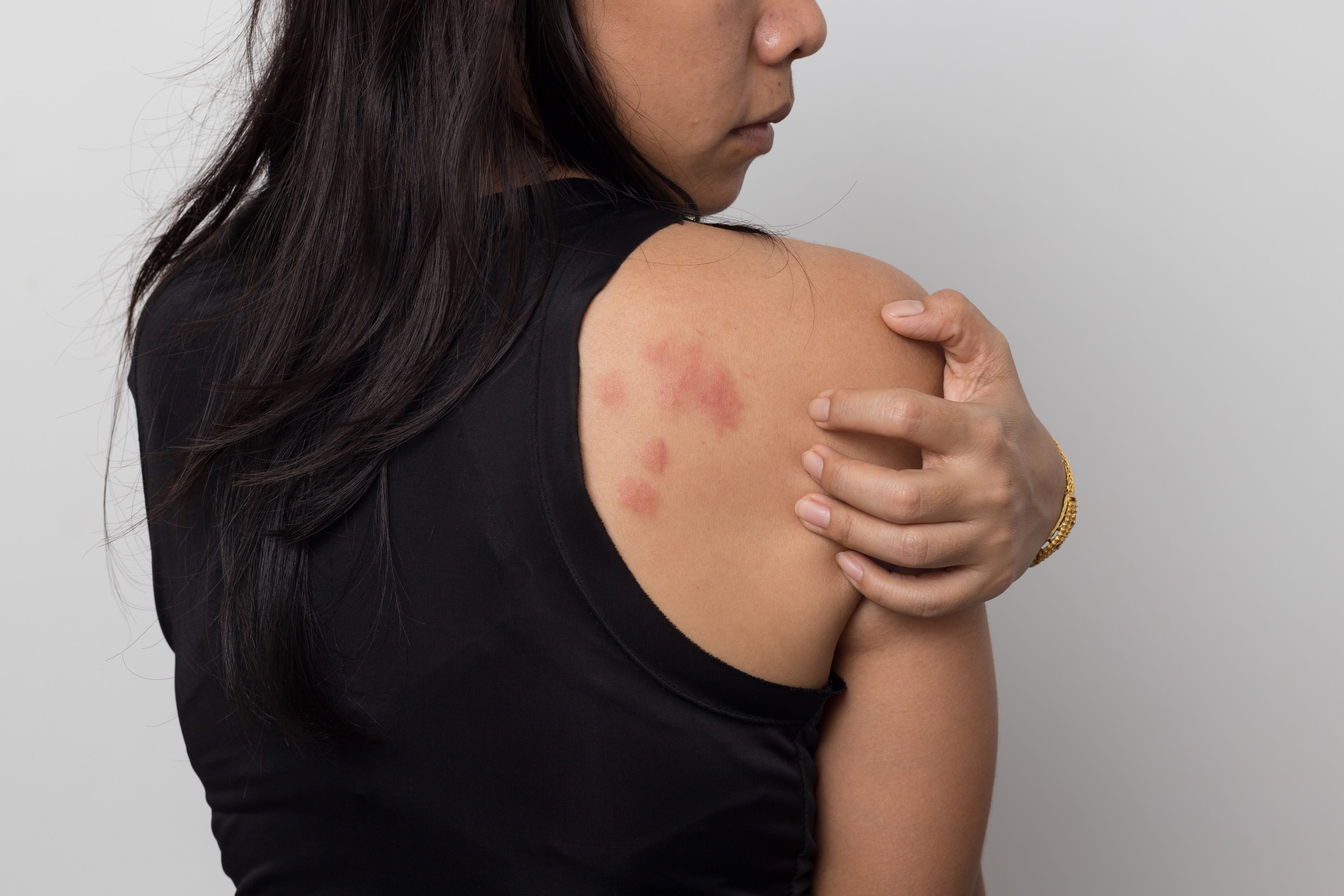- Acne
- Actinic Keratosis
- Aesthetics
- Alopecia
- Atopic Dermatitis
- Buy-and-Bill
- COVID-19
- Case-Based Roundtable
- Chronic Hand Eczema
- Chronic Spontaneous Urticaria
- Drug Watch
- Eczema
- General Dermatology
- Hidradenitis Suppurativa
- Melasma
- NP and PA
- Pediatric Dermatology
- Pigmentary Disorders
- Practice Management
- Precision Medicine and Biologics
- Prurigo Nodularis
- Psoriasis
- Psoriatic Arthritis
- Rare Disease
- Rosacea
- Skin Cancer
- Vitiligo
- Wound Care
News
Article
Omalizumab for Chronic Spontaneous Urticaria Does Not Yield Negative Maternal, Fetal Outcomes in Pregnancy
Author(s):
Researchers reviewed the efficacy and safety of omalizumab in patients with severe CSU in a routine clinical practice setting.
A recent observational study, EXPECT, showed no significant disparities in major congenital anomalies, live births, or premature births between the patient groups of either omalizumab-treated or conventionally treated pregnant individuals.1
These findings align with the European Medicines Agency's cautious endorsement of omalizumab for pregnant patients with antihistamine-refractory severe chronic spontaneous urticaria (CSU).2
Omalizumab, a recombinant humanized IgG1K monoclonal antibody targeting human IgE, has demonstrated efficacy in treating various conditions, including asthma, CSU, and nasal polyps.
While deemed safe for use in non-pregnant populations, its utilization during pregnancy has raised questions regarding maternal and neonatal outcomes,3 leading researchers to explore the efficacy and safety of omalizumab in patients with severe CSU refractory to second-generation H1 antihistamines (sgAH) who utilized the drug during pregnancy.
The study, published in the April edition of Clinical and Experimental Dermatology, aimed to address these concerns by comparing outcomes between omalizumab-treated and conventionally treated pregnant individuals in a routine clinical practice setting.
The multicenter retrospective study was conducted in Italy from January 2016 to March 2023 and collected data from 10 secondary dermatological centers in Italy.
Among the 1,625 patients with CSU who were treated with omalizumab, 29 pregnant individuals were evaluated, with 23 conceiving while on omalizumab treatment (group A) and 6 initiating treatment during pregnancy (group B).
In group A, patients had an average disease duration of 36.87 months and reported comorbidities such as hypothyroidism, asthma, alopecia areata, and coeliac disease. All had previously undergone treatment with sgAHs, and conception typically occurred after 21.35 weeks of omalizumab therapy. The majority discontinued both omalizumab and sgAHs upon pregnancy detection, with some later resuming therapy post-delivery. Group A totaled 23 births, including 21 liveborn singletons and 1 liveborn twin pair, with no reported congenital anomalies.
In contrast, group B patients initiated omalizumab at an average of 10.83 weeks' gestation, with all maintaining treatment until delivery. No patient restarted omalizumab post-delivery, and CSU relapse was manageable with sgAHs. Additionally, both groups experienced significant reductions in Urticaria Activity Score over 7 days with omalizumab treatment.
The study's findings suggest that omalizumab exposure during pregnancy does not correlate with increased risks of adverse maternal or neonatal outcomes in CSU patients. These results support those of previous studies in patients with asthma.
Despite the promising findings, study authors underscored the need for larger prospective studies to validate these results. Future research should include controls comparable in disease severity without omalizumab exposure, they wrote.
"CSU may improve, remain unchanged or worsen during pregnancy," wrote Patruno et al. "The use of omalizumab to treat CSU before and during pregnancy does not seem to negatively affect maternal or fetal outcomes. The lack of published real-life data prohibited the ability to draw any firm conclusions about risks associated with its use."
References
- Patruno C, Guarneri F, Nettis E, et al. Safety of omalizumab in chronic urticaria during pregnancy: a real-life study, Clin Exp Dermatol. Volume 49, Issue 4. April 2024. Accessed April 4, 2024. https://doi.org/10.1093/ced/llad386
- Pfaller B, José Yepes-Nuñez J, Agache I et al. Biologicals in atopic disease in pregnancy: an EAACI position paper. Allergy. 2021. Accessed April 4, 2024.
- Saito J, Yakuwa N, Sandaiji N et al. Omalizumab concentrations in pregnancy and lactation: a case study. J Allergy Clin Immunol Pract. 2020. Accessed April 4, 2024.
Newsletter
Like what you’re reading? Subscribe to Dermatology Times for weekly updates on therapies, innovations, and real-world practice tips.















